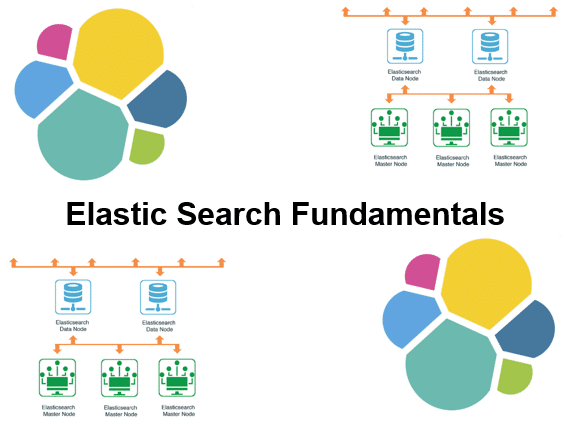-
Learning by doing
-
Trainers with practical experience
-
Classroom training
-
Detailed course material
-
Clear content description
-
Tailormade content possible
-
Training that proceeds
-
Small groups
In the course Elastic Search Fundamentals participants learn to use the Apache Lucene based search engine Elastic Search for Enterprise queries on different types of data. Elastic Search has a Rest API with which you can quickly retrieve search results in JSON format. Elastic Search however also supports other data formats such as XML.
Attention is paid to the different ways in which Elastic Search can be deployed such as standalone, in a cluster, embedded or as a container. Also discussed is the fundamental unit of an Elastic Search document that can represent any type of relevant application data.
Next it is explained what indices and mappings are and which data types can be assigned to fields. Various Elastic Search APIs are covered such as the Cluster APIs, the Indices APIs, the term vectors API and the bulk document API.
Attention is also paid to the Query DSL with which various queries can be executed such as full text queries, term level queries and geo queries. And explained is how mutations can be performed with queries.
Next attention is paid to how Elastic Search can be controlled from a Java application with Spring and Hibernate. Both the Java client API and the Java Rest Client are discussed.
The course concludes with an overview of the Elastic Stack with supporting applications and tools such as Kibana for visualization, Beats, Logstash and Testing Kit.
The course Elastic Search Fundamentals is intended for anyone who wants to learn how to use Elastic Search.
No specific prior knowledge is required to participate in the course Elastic Search Fundamentals. Knowledge of Java Development and the Spring Framework is beneficial for the understanding.
The theory is discussed on the basis of presentation slides and is interspersed with exercises. Demo projects clarify the concepts discussed. The course times are from 9.30 to 16.30.
Participants receive an official Elastic Search Fundamentals certificate after successful completion of the course.

Module 1 : Intro Elastic Search |
Module 2 : Mappings |
Module 3 : Using API |
|
What is ElasticSearch? Search Types Full Text Search Apache Lucene Restfull API's JSON Documents Running ElasticSearch Run as Data Node Run as Ingest Node Standalone Instance Clustering Embedded As Container |
Documents Indices Index Settings Mappings Meta Fields Data Types Advanced Mappings Dynamic Mapping Analyzers Tokenizers Character Filters Indexing Internationalization |
Check Clusterhealth Indexes API Store Catalog Settings Create Index API Catalog Index Immutability Get Mapping Types Analysis Process Index States Open and Close Single Document Operations Bulk Document API Fetch Documents |
Module 4 : Query DSL |
Module 5 : Java Client API |
Module 6 : Elastic Stack |
|
Search API Request Body Search Query Parameters Match All Query Full Text Query Term Level Queries Joining Queries Inner Hits Geo Queries Mutations by Query Explain API |
Transport Client Using Maven Spring Configuration Asynchronous Handling Aggregations DSL Java Rest Client JsonPath Library Using Indexing API Data Transfer Objects Using Testing Kit Integration Tests |
Hibernate Search JPA Entities Spring Boot Magic ELK Abbreviation Logstash Pipeline Kibana Visualization TCP Socket Plugin Logback Encoder elasticsearch-head elasticsearch-HQ search-guard |
